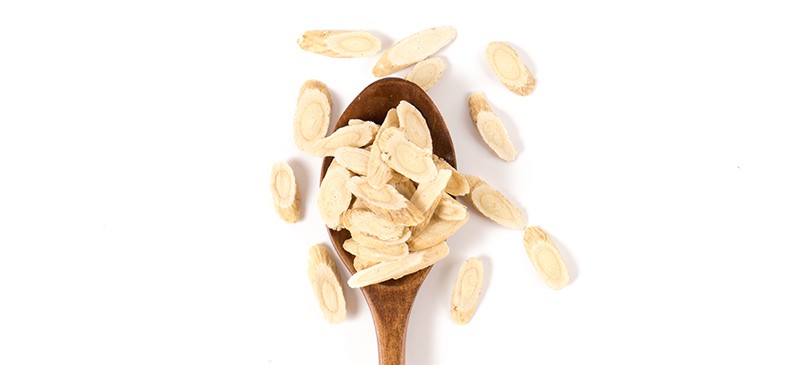This Dr. Axe content is medically reviewed or fact checked to ensure factually accurate information.
With strict editorial sourcing guidelines, we only link to academic research institutions, reputable media sites and, when research is available, medically peer-reviewed studies. Note that the numbers in parentheses (1, 2, etc.) are clickable links to these studies.
The information in our articles is NOT intended to replace a one-on-one relationship with a qualified health care professional and is not intended as medical advice.
This article is based on scientific evidence, written by experts and fact checked by our trained editorial staff. Note that the numbers in parentheses (1, 2, etc.) are clickable links to medically peer-reviewed studies.
Our team includes licensed nutritionists and dietitians, certified health education specialists, as well as certified strength and conditioning specialists, personal trainers and corrective exercise specialists. Our team aims to be not only thorough with its research, but also objective and unbiased.
The information in our articles is NOT intended to replace a one-on-one relationship with a qualified health care professional and is not intended as medical advice.
10 Proven Benefits of Astragalus
December 12, 2024

Astragalus root is one of the most powerful immune-building plants on the planet. This adaptogen herb helps fight stress and disease at the same time. No wonder why it’s called in China huang qi, which translates to “yellow life energy,” partly because of the root’s yellow color.
In addition to pumping up your immune system, studies show it’s vital for cardiovascular health and can even alleviate symptoms of chemotherapy.
Learn about other benefits of astragalus, how to add it into your wellness routine and why it’s one of the top herbs.
What is astragalus?
Astragalus is a plant within the Leguminosae (beans or legumes) family, with a very long history as an immune system booster and disease fighter.
It’s been used as an adaptogen for thousands of years in Traditional Chinese Medicine in order to help the body fight off stress and disease.
The perennial flowering plant, also called milkvetch root and Huang qi, grows from 16 to 36 inches tall and is native to the north and eastern regions of China. It’s also been traced back to Mongolia and Korea.
Astragalus roots are harvested from 4-year-old plants and are the only part of the plant that’s used medicinally. Only two of the over 2,000 species of astragalus, astragalus membranaceus and astragalus mongholicus, are used medicinally.
Astragalus contains three components that allow the plant to have such a positive impact on human health: saponins, flavonoids and polysaccharides, which are all active compounds contained in certain plants, including some fruits and vegetables.
Saponins are known for their ability to help lower cholesterol, improve the immune system and prevent cancer.
Flavonoids, also found in astragalus, provide health benefits through cell signaling. They show antioxidative qualities, control and scavenge of free radicals, and can help prevent heart disease, cancer and immunodeficiency viruses.
Polysaccharides are known to have antimicrobial, antiviral and anti-inflammatory capabilities, among other health benefits.
Benefits
1. Acts as an anti-inflammatory
From arthritis to heart disease, inflammation is often the culprit of the damage. Many studies show that thanks to its saponins and polysaccharides, astragalus can reduce inflammatory response in connection to a number of illnesses and conditions, from helping to heal wounds and lesions to reducing inflammation in diabetic kidney disease.
2. Supports the immune system
In terms of reputation, boosting the immune system is considered one of astragalus’ main remedies. It’s been used in this capacity for thousands of years.
A study out of Beijing displayed its ability to control T-helper cells 1 and 2, essentially regulating the body’s immune responses.
It’s also been shown to enhance immune response in mice, and in a randomized controlled trial, members of the Polish rowing team had their immunological balance restored when taking astragalus root. However, more research is needed for how astragalus can impact the immune system.
3. Helps slow or prevent the growth of tumors
Many recent screenings have shown the success of astragalus saponins, flavonoids and polysaccharides in decreasing or eliminating tumors. In instances of chemoresistance treating liver cancer, astragalus has shown potential in reversing multidrug resistance and as an addition to conventional chemotherapy, according to a study published in the Journal of Pharmacy and Pharmacology.
The root’s anti-tumor effects have been studied extensively, showcasing promise to slow or prevent tumor growth.
4. Protects the cardiovascular system
The flavonoids present in astragalus are antioxidants that help prevent plaque buildup in arteries and narrowing of vessel walls by protecting the inner wall of the vessel. A 2014 study published in the Chinese Journal of Integrative Medicine suggests injection of astragalus, combined with conventional treatment for viral myocarditis (inflammation of the middle layer of the heart wall), makes treatment more successful in heart conditions.
Other animal studies have shown its ability to reduce blood pressure, and can help control triglycerides. High levels of triglycerides put individuals at risk for many forms of heart disease, such as stroke, heart attack and hardening of artery walls.
During a heart attack, heart muscle damage occurs when there is a lack of blood supply and oxygen. At that time, calcium overload creates secondary damage. Astragalus may prevent additional heart muscle damage by regulating calcium homeostasis in the heart.
5. Helps prevent diabetes
Astragalus has been studied progressively as an antidiabetic. Several animal studies show its ability to relieve insulin resistance and help manage diabetes naturally.
The herb’s saponins, flavonoids and polysaccharides all are effective in treating and regulating type 1 and 2 diabetes. They’re able to increase insulin sensitivity, protect pancreatic beta cells (the cells in the pancreas that produce and release insulin) and also act as anti-inflammatories in areas related to diabetes symptoms.
Kidney disease in diabetics is also a common problem, and astragalus has been used to treat kidney illness for many years. More recent studies in humans and animals have shown astragalus can slow the progress of kidney problems in diabetics and protect the renal system.
6. Contains antioxidative and anti-aging capabilities
Oxidation due to free radical damage is the main component in disease and aging, and many elements found in astragalus fight free radical damage and prevent oxidative stress.
The herb’s polysaccharides have positive effects on the immune system and improvement of the function of the brain, both of which could lengthen life span.
7. Aids in wound healing and helps minimize scarring
Because of its anti-inflammatory qualities, astragalus has a long history of treating wounds. Radix astragali, another name for the dried root of astragalus, has been used in Traditional Chinese Medicine for the repair and regeneration of injured organs and tissues.
In a 2012 study by the Institute of Pharmaceutics at Zhejiang University, wounds treated with astragaloside IV (the active ingredient in dried astragalus root) showed recovery rates increase two- to threefold over 48–96 hours. It was concluded that astragalus is a promising natural product for anti-scarring and healing in wounds.
8. Helps alleviate symptoms of chemotherapy
Astragalus has been shown to help patients receiving chemotherapy to recover more quickly and extend their life spans.
In cases of severe chemotherapy symptoms like nausea, vomiting, diarrhea and bone marrow suppression, astragalus has been given intravenously and in combination with other Chinese herbal mixtures. Early research suggests it has the ability to reduce these symptoms and increase the efficacy of the chemotherapy treatments.
9. Can treat colds and flu
Because of astragalus’ antiviral capabilities, it has long been used to treat common colds and the flu. It’s commonly combined with other herbs, like ginseng, angelica and licorice root.
As with many other natural cold remedies, it seems to work better when used when healthy individuals use the supplement regularly in order to prevent the illness before it happens. A regimen of astragalus before the colder months of winter may help prevent or decrease the number of colds and upper respiratory illnesses individuals will have throughout the season.
10. Provides supplemental therapy for chronic asthma
Astragalus has been used to treat chronic asthma and determined to be a successful supplemental therapy and asthma natural remedy. After being treated, hypersensitivity in airways decreased substantially and mucus production and inflammation were reduced in studies.
By preventing or reducing asthma attacks, individuals could be relieved of chronic asthma issues.
There is also evidence to suggest astragalus can potentially:
- prevent collagen degradation.
- help heal lung tissue affected by bronchopulmonary dysplasia in newborns.
- inhibit herpes simplex virus 1.
- prevent the replication of viruses like Coxsackie B-3, a virus that triggers illnesses ranging from mild stomach issues to major heart complications.
- treat inflammation in allergic dermatitis (an allergic reaction of the skin).
- help treat hepatitis by inhibiting hepatitis B virus cells in the liver.
- treat HIV by protecting T-helper cells that fight the virus for much longer.
- be used as a mild diuretic.
How to use
There are a number of ways to use astragalus root medicinally. Astragalus is currently used as an addition to conventional treatments and should not be used as a replacement for medications unless suggested by a doctor.
Astragalus is available at most Chinese markets or health food stores in these forms:
- Tincture (liquid alcohol extract)
- Capsules and tablets
- Injectable forms for use in hospital or clinical settings in Asian countries
- Topically for the skin
- Dried and used in tea
There is not a standardized dosage for astragalus. A typical dose is often between 9 and 30 grams. You can work with your healthcare professional or specialist to determine how much you should take and how often. There are differences in doses depending on age, health and medical history.
Risk and side effects
Astragalus is generally safe to use with no serious side effects. There are possible interactions with other herbal supplements, so start with smaller doses to prevent side effects.
Women who are pregnant and who are nursing should not use astragalus, as some animal research indicates it may not be safe for pregnant moms.
People with autoimmune diseases should speak with their doctors before starting astragalus because of its ability to stimulate the immune system. Individuals with diseases like multiple sclerosis, rheumatoid arthritis and other immune system conditions could be especially sensitive to astragalus.
Some specialists suggest only using a specific adaptogen for a few months and then moving on to another.
The following drug interactions can occur with astragalus:
- Cyclophosphamide (Cytoxan, Neosar): This drug is used to suppress the immune system. Using astragalus can decrease the effectiveness of this drug.
- Lithium: Astragalus can affect how the body reduces lithium levels because of its diuretic qualities. Taking astragalus with lithium can lead to unsafe levels of lithium in the body. Speak with a medical professional before combining astragalus with lithium, as a dosage change might be required.
- Immunosuppressants: Drugs that suppress the immune system are commonly used to help prevent rejection in transplant patients and accept the new organ or tissue. Because of astragalus’ immune system boosting capabilities, it decreases the effectiveness of these drugs. Some of these drugs include azathioprine (Imuran), basiliximab (Simulect), cyclosporine (Neoral, Sandimmune), daclizumab (Zenapax), muromonab-CD3 (OKT3, Orthoclone OKT3), mycophenolate (CellCept), tacrolimus (FK506, Prograf), sirolimus (Rapamune), prednisone (Deltasone, Orasone), corticosteroids (glucocorticoids) and others.
Conclusion
- Astragalus root is an adaptogen used in Traditional Chinese Medicine as a remedy for a large number of conditions.
- The most extensively researched benefits of astragalus are as an anti-inflammatory, immune system booster, support for heart health and supplemental therapy for chronic asthma.
- There are several ways to use it, from teas to supplements to topical creams. You can also incorporate it into various recipes.
- When using astragalus, be sure to consult with your healthcare professional, and be aware of possible interactions and side effects.

